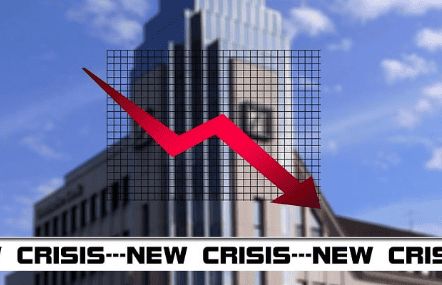Crisis Leadership Blog
Insights and perspectives on being the lighthouse during a crisis.
When Controversy Snowballs into Crisis
The Washington Post has been shaking things up lately, especially in its opinion section. Owner Jeff Bezos just announced a shift to focus on "personal liberties and free markets," which led to the resignation of respected opinion editor David Shipley. This move,...

(Un)Welcoming a One-Drink Minimum Policy
A few weeks ago, Starbucks announced that it would be ending its open-door policy, which allowed people to use the store's seating and restrooms even if they didn't make a purchase. The company stated that the change was made to "enhance" the customer experience....

A Resolution Worth Sticking To: Crisis Vigilance in the New Year
With the holidays in the rearview mirror, many of us now turn to making personal resolutions for the new year. Whether it's training for a Tough Mudder, getting more sleep (hello, melatonin), saving more money for your dream retirement beach house, or remembering to...

When an Apology Isn’t an Apology
Saying “I’m sorry” shouldn’t be hard. When we say or do something that hurts someone else, then we as humans should own it, apologize for it, and try to make it right. But, many public apologies seem to miss this relatively easy target. Is someone sincerely...

Hanging in the Balance: Why and How Financial Leaders Should Prepare for the Unexpected
Any crisis comes with costs – economic costs, social costs, psychological costs – and long-term implications for your business’ bottom line, reputation, and team morale. No industry is immune to the threat of a crisis. Some sectors, including finance, face heightened...
By definition, Kith means a cadre of peers who shape opinions and attitudes while instilling sophisticated habits for action. As a way to live this value, we like to share resources that are building blocks to good crisis management and can help you start the path of protecting your reputation.
More Recent Insights

The Cost of Inaction
I have danced ballet most of my life. It’s the one thing I keep coming back to but I now live somewhere where there are not many options for ballet. Barre is o.k. Pilates is great. I was once kicked out of a yoga class for tapping my fingers. Nothing is ballet. So besides naturally standing in first position, I have slacked off. I haven’t actively been...

Think Twice, Speak Once
My grandfather built his own house on a farm in Saskatchewan. The house is now 75 years old and is home to a new family. I am tremendously fortunate to have had him share this skill with me. I built a bookshelf, can hang doors, and build decks. As with most carpenters, the cardinal rule was to measure twice and cut once. There are a number of recent...

Control What You Can Control, Including Your Anger
Justin Wilcox is used to winning and losing. For the head football coach of the University of California Golden Bears, wins and losses usually come on the football field, but his latest loss was handed to him by a bunch of college presidents and network executives far, far away from his practice field. “There's no denying the significance of this," Wilcox...

The Cost of Cri$i$
“What does a crisis cost?” I’ve been asked that question a few times. Disappointingly, my answer invariably is, “It depends.” Part of the answer depends on the specific aspects of the crisis and the company going through it, but much more rests on the definition of “cost.” If we’re talking about financial cost, then all we need to do is add together lost...

Trust as a KPI
Fortune magazine has recently launched a newsletter focused entirely on trust. They are framing it as “trust is the new KPI”. Just in case you’ve been living under a corporate rock, KPI stands for Key Performance Indicator. The Trust Factor is a “weekly guide to earning, retaining, and strengthening trust with your employees, business partners, and...

Don’t Become the Woking Dead
Bud Light. Disney. Mars Wrigley. Dilbert. The Super Mario Bros movie. Victoria’s Secret. Utah’s proposed new state flag. BlackRock. The U.S. military. Legos. Jack Daniels. Even Chick-fil-A. Accusations of “wokeness” have been flung far and wide so far in 2023. Is your company next? Are you ready? Defining “woke” is about as easy as folding soup. Its...

There Is Going To Be Another Bud Light. Are You Next?
It’s not often that a brand can anger all sides of the political spectrum and take a financial hit but Bud Light managed to do that last week. And there has been a tremendous amount of analysis of the roots of the controversy as well as the response. Some have called it a failure of marketing. Others have called the situation a failure of leadership both...

Three Lessons from FTX’s Collapse for Crisis Leaders
The dust from the wreckage of FTX’s collapse doesn’t have time to settle before it’s stirred up again. The latest revelation – that one of the world’s most “admired” cryptocurrency exchanges was comically terrible at both IT security (the “crypto” part) and tracking funds (the “currency” part) – should keep the dust billowing for a while. While there are...

Crisis Efficiency
Many organizations seek efficiencies during times of economic uncertainty. For many executives, “efficiency” equates to reducing costs. Two of the most tried and true methods of reducing costs are eliminating headcount and cutting back on support services that do not generate revenue. Frequently, chasing these kinds of efficiencies means that you are also...

Systems Failures May Be Trending in 2023
I was recently asked if I had any prediction for the “next thing” in crisis management for 2023. Without hesitation, I replied, “Systems failures.” 2022 ended with two epic system failures, and they threw a bright light on the potentially devastating impacts of scrimping on IT investment or failing to modernize operational practices and the systems that...
The Kith Method
Good crisis management comes from a plan. Great crisis management comes from capability – and starts before you even smell smoke. That’s why we developed the Kith Method. We can help build and maintain a flexible capability that works for you.
Your reputation is an investment; time-consuming and costly to build and expensive to repair. Protect it.
